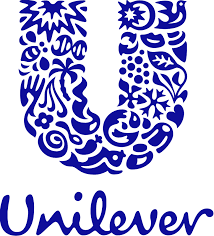Update: Flour Mills Net Profit Down 38.72%, As Finance Cost Hits N32.52bn
Flour Mills Nigeria Plc, a conglomerate engaged in various forms of agriculture, food and cement production presented its audited result for the year ended March 31, 2017, with the robust 53.08% growth in revenue rubbished by an equally significant 50.1& rise in cost of sales, finance and other associated costs, following which profit after tax fell by N5.583bn or 38.72%. The directors managed to pay N1.00 per share as dividend, just as previous year.
Specifically, revenue for the period rose by N181.878bn from N342.586bn in the corresponding period of 2016 to N524.464bn, while cost of sales rose to N457.774bn from N304.961bn, resulting in gross profit of N66.689bn, up from N37.624bn.
The company’s operating segments comprised: food (milling and sales of flour and rice, production of pasta, snacks, sugar and noodles); agro allied (maize farming, cassava, soya, sugarcane and oil palm and production and sales of fertilizer, edible oils and livestock feeds; packaging, port operations and logistics, as well as real estate.
A breakdown of the revenue, cost of sales and gross profit showed that the food business as the most significant contributors as it yielded N422.709bn, N364.984bn and N57.725bn respectively; followed by the agro allied business segment’s N80.514bn; N73.72bn and N6.794bn respectively; while the packaging segment added N20.693bn; N18.365bn and N2.328bn to revenue, cost of sales and gross profit respectively.
The lion’s share of the revenue- about N510.7bn, according to the company was stood at N510.7bn, while export revenue amounted to N13.78bn, with N11.3bn of this from export to a customer in Cyprus.
A further analysis of the cost of sales showed that raw and packaging materials was the bulk, accounting for N403.153bn from N264.15bn; followed by fuel, gas and oil cost which jumped from N8.591bn to N18.581bn.
Selling and distribution expense was flat at N5.341bn, as against N5.003bn; administrative expenses rose slightly to N18.419bn from N15.848bn; net operating loss dropped to N1.488bn from N7.72bn; translating into a huge operating profit of N41.439bn, as against N9.052bn in the prior full year.
Investment income rose to N1.562bn from N1.103bn; just as finance costs stood at N32.529bn, compared to N22.397bn in 2016, following which profit before tax therefore fell to N10.472bn from N11.489bn.
Tax for the period dropped to N1.636bn from N2.931bn; while net profit dropped by N5.583bn from N14.42bn to N8.836bn, which translated to earnings per share of N3.03, as against the preceding year’s N5.57






